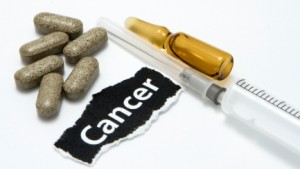Would You Say If Your Child Had an Increased Cancer Risk?
 When your child’s wellbeing is at risk of cancer, should you tell them? According to a new study, when family wellness known to be at risk for BRCA1 and BRCA2 genes, parents will share those results with their children, even if those children are very young. The BRCA1 and BRCA2 genes indicate an increased risk to both breast and ovarian cancer.
When your child’s wellbeing is at risk of cancer, should you tell them? According to a new study, when family wellness known to be at risk for BRCA1 and BRCA2 genes, parents will share those results with their children, even if those children are very young. The BRCA1 and BRCA2 genes indicate an increased risk to both breast and ovarian cancer.
For the study, which was published online last year in the journal Cancer, 253 parents completed a telephone interview about being tested for the genes, and passing that information on to their children. There were a total of 505 children younger than 25 years old, and 66% of children were apprised of the results. Mostly, children were not, by all appearances, distressed by the news. 41% of children had neutral responses to test results, and 28% showed signs of happiness or relief. 13% of children were concerned for the wellness of their parents, themselves, in general, or for other family members, and 11% of the participants reported that their children were upset, scared, avoidant, or fatalistic in response to being told the news. 4% of children found the information useful, 5% asked questions and 7% of the parents noted that their children did not seem to understand the information.
Parents reported that their decision to tell their children depended significantly on certain factors. This included the child being older, the child being female (if the test results for the parents were negative for the BRCA1/2 gene), the test result being negative in general, and the parents having only a high-school education. The same team discovered in a previous study that the most common reason for disclosure was to provide the children with information that could increase their health awareness so that they could be tested. Parents also wanted to explain the family history of cancer and medical interventions that they were undergoing. If they chose not to disclose the information, parents gave the reasons that the children were too young, that it might increase the child’s anxiety or fear about getting cancer, that it might increase the child’s concern about parental health, and that there was no reason to disclose the results.
According to lead author Angela R. Bradbury, MD, assistant professor in the Department of Clinical Genetics at the Fox Chase Cancer Centre in Philadelphia, Pennsylvania, ‘The effect on telling children is still unclear, and the optimal age for discussing genetic test results is also still unclear’ and whilst that is the case, ‘many parents are facing the decision now and electing to share… For many, this is not a negative experience — at least by parent report.’


Comments are closed.